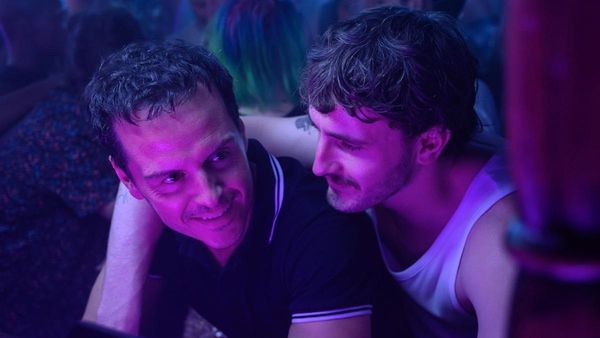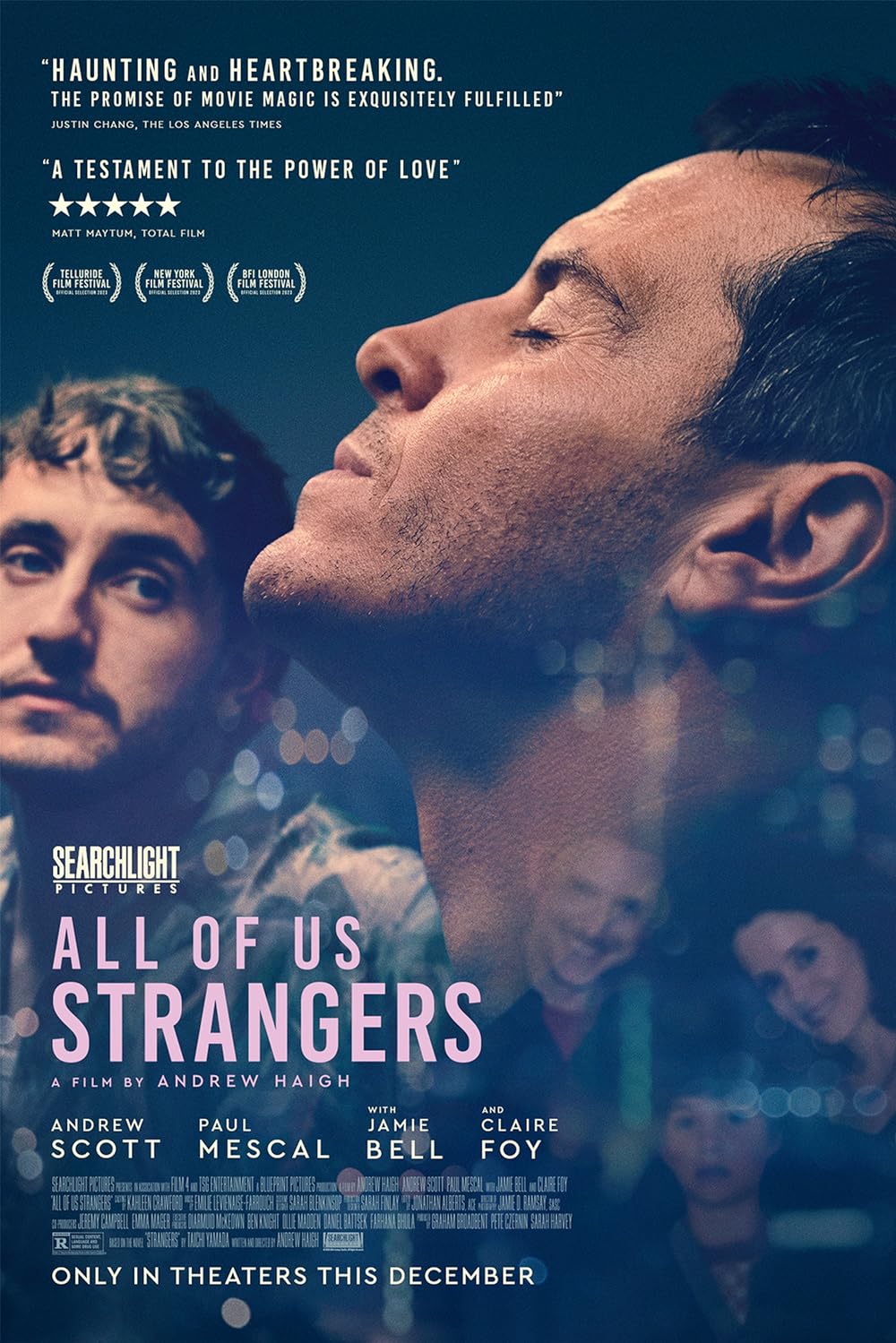Eye For Film >> Movies >> All Of Us Strangers (2023) Film Review
All Of Us Strangers
Reviewed by: Jennie Kermode

Andrew Haigh should be used to awards attention by now, after the successes of Weekend and 45 Years, but his latest work, All Of Us Strangers, looks set to outshine both. Like Weekend, it begins with the development of a new relationship, but rather than focusing on the possibilities which this opens up, it takes a deep journey into the experience of bereavement, grief, and when or whether one should be ready to let go.
A significant amount of the film’s budget must have been spent on music because the soundtrack pulses throughout with the most popular LGBTQ+ scene hits of the Eighties. For anyone who existed in those spaces at that time, these immediately set the mood: the loneliness, the melancholy and the determination to survive through the pursuit of love or partying. Protagonist Adam (Andrew Scott) lives in a neatly furnished home, no longer feels the need to hide his sexuality, and tells himself he’s fine, but the music says otherwise. The treatment of LGBTQ+ people back then did damage which lingers to this day. For Adam, who also lost his parents early in life, it led to an emotional withdrawal and refusal to let anybody get too close.

His isolation is compounded, for the meantime, by his existence within an apartment block which is almost empty, though full enough with symbolic weight. It’s outside London, which was always his goal, and thus situates him in a physical as well as psychological limbo. His first encounter with the only other inhabitant, Harry (Paul Mescal) does not go well, as Harry is drunk and upset and Adam feels uncomfortable in his presence, but subsequently he seeks to repair the damage and the two of them become lovers. Then something strange happens. Taking a train, Adam finds himself at his childhood home – and discovers his parents living there just as they did when he was young.
Haigh has the sense not to focus too heavily on the mystery elements involved here, which are either easy to figure out or intentionally left unresolved. It doesn’t really matter why Adam experiences what he does. With the situation speedily accepted, there’s room to explore the complexities of parental relationships with adult children and all the things that look different with hindsight – the things they wish they’d understood about his needs, the things he didn’t understand about their own uncertainties and inexperience. Their lack of awareness of the intervening years – beyond what he tells them – gives this an immediacy which allows for reflections not muddled by the passing of time or the repetition of excuses. It also lets Haigh explore changing attitudes to LGBTQ+ people, highlighting progress which is sometimes overlooked but, in the process, making viewers more acutely aware of just how hard things were.
The family home has been decorated with a real eye for detail and is complemented by great costuming, hair and make-up work. Viewers who lived through the period will find themselves anticipating fabrics and ornaments which then appear. The lighting is also very good, contributing to an immersive atmosphere. This contrasts strongly with the simplicity and clarity of the apartment building, which might exist outside of time. In between, the train journeys take on a noirish character.
Initially, it’s Mescal who delivers all the emotion in the men’s relationship, his neediness generating the energy which can bring them together in spite of Adam’s remoteness. With Harry and with his mother, who worries about homophobia and “that awful disease” the way Eighties mothers did, Adam seems like the calm one, the sensible one, and we see the mask he has cultivated over the years. As it begins to give way, however, flickering on and off on those train journeys, something else emerges, a slow build up of pressure like a free diver just beginning to feel the pressure in his lungs as he nears the surface. It’s a beguiling performance, inviting viewers to drop their guard en route to an ending which, though still downplayed, packs a real emotional punch. If you do see it coming, you’ll still feel the impact.
Though it’s aimed squarely at an LGBTQ+ audience – preferably middle aged and in the UK – All Of Us Strangers has plainly succeeded in connecting more widely, and its central storyline is something which anyone might relate to. It’s hard going in places, and you might be left wondering what you’re supposed to take away from the ambiguous final scenes, but that’s the nature of bereavement, and in a country which has seen more of that than usual in recent years, this is a welcome attempt to address the subject of healing.
Reviewed on: 18 Dec 2023
















